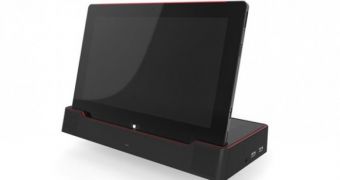Last week we covered the information currently known about the upcoming Beema and Mullins, then later we found Project Discovery, its plan to enter the gaming tablet industry. Now we'll be looking closer at what that means for the company.
Project Discovery is a Windows 8 tablet and line of peripherals, including a game controller, that AMD hopes will compete with products from professional gaming equipment makers, like Razer.
It's not the first gaming tablet with “integrated” game controller, but it's still among the early examples, since only two of them have been revealed before, WikiPad and Razer Edge.
Not much was said about Discovery though, which is understandable because the Mullins APU at its heart hasn't been detailed either.
Some pictures still showed up though, and we included them in our previous coverage of this topic.
We can expect more information during the Consumer Electronics Show, set to take place in January 2014 (CES 2014).
At that point, we should get a better idea of what the tablet can do, along with its game controller and docking station.
In all honesty, we aren't too shocked by Project Discovery, not when we know for certain that NVIDIA's Logan Tegra SoC will be used in tablets with console-level graphics next year.
Now that Advanced Micro Devices actually has accelerated processing units capable of competing with other mobile platforms (Mullins runs on 2W), it makes sense that it would want to catch up to NVIDIA and other ARM processors in that field.
Discover is just a proof of concept though. AMD probably won't be starting a tablet line of its own. Instead, it hopes to charm OEMs into developing Mullins-based tablets. AMD's DockPower technology seems to be used, along with DisplayPort 1.2.
Now we just have to wait and see if Mullins matches NVIDIA's Tegra Logan (which has Kepler graphics).

 14 DAY TRIAL //
14 DAY TRIAL //